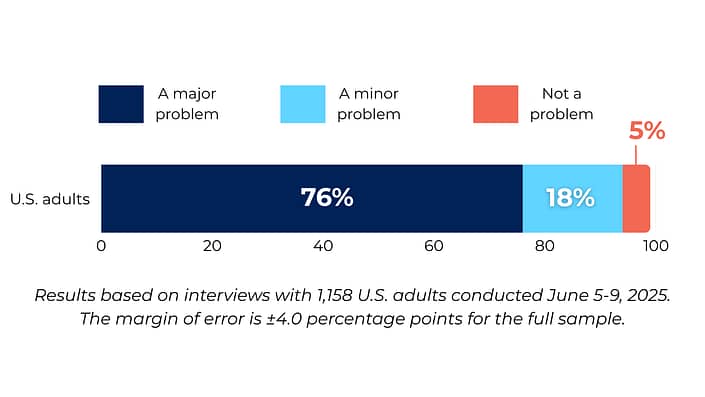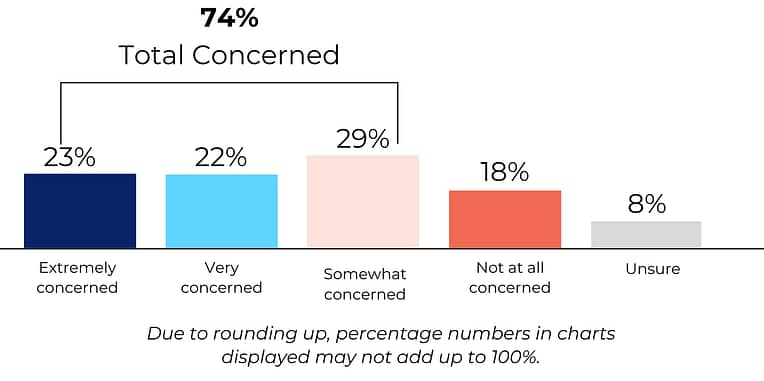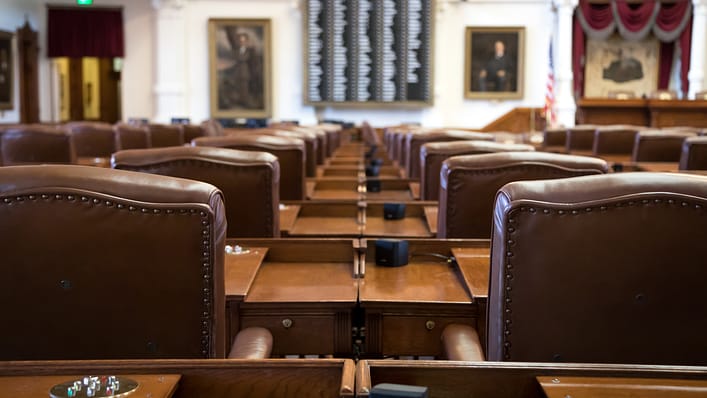Your guide to solving Texas’ childcare challenge
This is a preview of our Texas 2036 newsletter with what you need to know about the state of childcare in Texas. To receive this weekly look at our work, sign up here.
The state of childcare in Texas

Texas’ booming economy and strong job market are attracting more families and businesses every day.
With more than 1,500 people coming to Texas a day, access to high-quality, affordable childcare for Texas parents and employers is more important than ever.
Texas children: By the numbers

-
Every 90 seconds, a child is born somewhere in Texas. That’s more than 1,000 babies a day. (source: Texas 2036)
-
Texas has the second-largest population of children under 18.
(source: U.S. Department of Health and Human Services, Administration for Children and Families, Children’s Bureau) - Between 2020 and 2024, Texas led the nation in youth population growth at 2.7%, the second-highest percentage increase in the country. (source: Axios Dallas via U.S. Census Bureau)
Here’s what parents have to say
Nationally, 76% of adults say childcare costs are a major problem, according to a June AP-NORC poll.
Percent who say the cost of childcare is _______ in the United States:

In our latest Texas Voter Poll, 74% expressed concern about affordable childcare access, and nearly half (45%) said they are extremely or very concerned.
Which best describes your level of concern regarding the availability of affordable childcare in Texas?

Did you know?
Even though Texas is one of the more affordable states for childcare, families still spend over $10,000 a year before Kindergarten.
That’s about 13% of the median household income in Texas ($75,780)—almost double the upper limit of what the U.S. Department of Health and Human Services says families should pay for child care.
What’s the problem?

Texas’ childcare system is fragmented and inefficient, hampered by unreliable data, siloed leadership and limited coordination across state and federal entities.
The result is missed opportunities for economic growth. Childcare challenges cost Texas up to $11.4 billion every year in lost productivity and revenue for parents, businesses and taxpayers.
To chart a path forward, we first need answers to some basic questions:
- How many Texas children need early childhood care but cannot currently access it?
- How many child care seats are currently available?
- What is the value (price and quality) of those seats?
State lawmakers are taking action

The Texas Legislature made several important advances in child care policy this year including three new laws recently signed by Gov. Abbott to strengthen how child care operates in Texas.
- House Bill 4903 – Aligns oversight across four state agencies involved in childcare, reducing regulatory conflict and confusion for providers.
- House Bill 117 – Creates a Governor’s task force to improve governance of two major state agencies involved in childcare: Texas Health and Human Services and the Texas Workforce Commission.
- House Bill 3963 – Integrates existing early childhood data into a secure, connected system shared between agencies, easing bureaucratic burdens and increasing cross-agency collaborations.
If we get childcare right, Texas will succeed

High-quality early childcare sets the stage for lifelong success. Children in strong early programs are more likely to excel in school and graduate prepared for the future.
Childcare is also an economic issue. When parents have access to affordable, reliable care, they can fully participate in the workforce. When they do not, businesses across Texas feel the strain.
“Early childhood programs that are sustained and high quality can have long-lasting impacts on children, preparing them for formal schooling and beyond…early education [also] paves the way for parents to be in the workforce. This is a win-win-win for society.”
– Andres S. Bustamante and Kathy Hirsh-Pasek
The Brookings Institution
That’s why we’re doing a first-of-its kind study on the issue.

At Texas 2036, we believe credible data and rigorous analysis are essential to creating long-term, sustainable solutions that expand access to affordable, high-quality childcare across the state.
To put this belief into action, we are launching a first-of-its-kind study to understand Texas’ childcare needs and provide the data needed to drive bold reforms. With additional philanthropic investments, we can modernize the childcare system, strengthen the economy and support families statewide. Join us in this effort.
